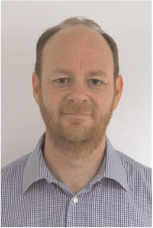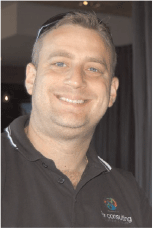How an integrated multi-discipline approach to ALARP assessments can yield production increases while minimising HSE risk
Jim Bonini A , Lucy Muir A and Steven Blackmore AS2V Consulting.
The APPEA Journal 56(2) 543-543 https://doi.org/10.1071/AJ15049
Published: 2016
Abstract
Demonstration that risks are reduced to as low as reasonably practicable (ALARP) is a fundamental element of safety and environment regulation in the Australian oil and gas industry. The principle is well established, and offers operators relative flexibility in designing and managing their operations when compared to the more prescriptive regime adopted in other countries, such as the US.
The approach, however, to building the ALARP case invariably differs between safety, environmental, and technical disciplines within oil and gas operators, leading to conflicting outcomes and sub-optimal solutions, which in turn can hamper production output and efficiency.
A recent change in offshore regulations requires operators to focus on reducing overall environmental impacts from produced water through the ALARP principle, rather than by a prescribed limit. Through options screening, detailed technical studies, and consideration of environment and health and safety trade-offs, a robust ALARP position can be achieved, which yields increased production and efficiency, and reduced environmental impact, health and safety risk and associated cost.
Drawing on recent project case studies with offshore oil and gas operators in Australia, the authors present best practices in the development of integrated ALARP cases for activities including produced water treatment and decommissioning.

Jim Bonini has 20 years’ international upstream oil and gas industry experience, across the lifecycle from field development planning, through project execution to start-up, commissioning, asset support, and modifications. His experience spans broad, in-depth technical exposure and various technical, project, and business leadership roles. Jim has worked on both offshore and onshore developments, from marginal fields to worlds scale gas processing facilities, in both the greenfield and brownfield arenas, and has extensive experience in asset design, optimisation, integrity, and risk management. He is S2V Consulting’s Technical Director and also leads the organisation’s process and facilities group. |

Lucy Muir is a degree-qualified marine biologist and oceanographer with 10 years’ experience working as an environmental consultant in the oil and gas industry and in marine conservation. Lucy’s recent work has been focused on environmental engineering and impact assessment for both offshore and onshore activities including ALARP assessments, regulatory approvals, and compliance. Her work encompasses all phases of projects from concept and planning through to operations and decommissioning. She specialises in advising clients on projects to ensure a robust environmental impact assessment process and ALARP demonstration, while ensuring compliance through effective implementation. Lucy is Manager of S2V Consulting’s Perth-based team of environmental specialists. |

Steven Blackmore has 10 years’ experience in the upstream and downstream oil and gas processing industry. He has a wealth of experience in process design, including skid-mounted oily water treatment systems, gas processing plants and refining, and also has extensive experience in major revamp, debottlenecking projects involving significant brownfield modifications and integration with existing systems, and working as part of a large multi-disciplined team. Steven has experience as a produced water treatment system vendor, and has conducted assessments of existing produced water treatment systems for clients’ offshore facilities to identify short and long term opportunities for production optimisation. In addition to his technical skills, Steven has experience in the management of small projects and the procurement of process and mechanical equipment. |


